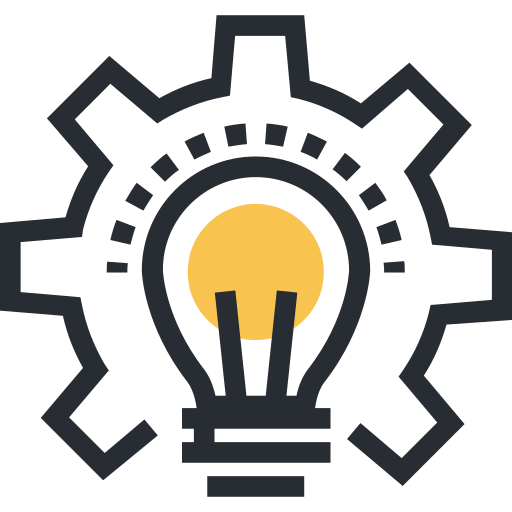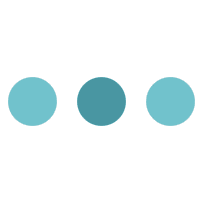Study objectives
The purpose of the Nursing degree programme is to train nursing experts. The students will receive a theoretical basis, learn professional clinical skills and establish an ethical foundation that is necessary for nurses.
The studies will prepare the students for the following: customer-oriented nursing, management and entrepreneurship, clinical nursing, social welfare and health care operating environment, evidence-based operation and decision-making, guidance and teaching expertise, promoting health and an ability to cope with daily situations, and the quality and safety of social welfare and health care services.
Nursing graduates will be able to guide, support, treat and rehabilitate people with different illnesses in cooperation with their next of kin and other professionals. They will also know how to take care of the persons close to the customer, as guiding them is an important part of their work.
Evidence-based nursing expertise is enhanced in a variety of learning and operating environments.
Nursing degree graduates will be able to work with customers of different ages, promoting their health and wellbeing and treating their illnesses.
The students will also learn to participate in and coordinate various multidisciplinary working groups and networks and to develop their own work practices.
Language of instruction
The programme is conducted in English. Students may also participate in Finnish-language nursing courses. Some courses can combine Finnish-language and English-language groups.
Study contents
The training consists of 210 ECTS credits and takes about 1.5 – 2 years to complete, depending on one’s prior education in the field of Nursing.
The studies consist of core requirement studies, language studies, practical training that supports professionalism, final project, innovation studies and multidisciplinary elective studies.
Students whose native language is not Finnish will have Finnish lessons as part of their curriculum.
Completing the degree requires full-time study. Lectures are mainly held during the daytime. Supervised training follows the work hours of the unit in question, which may be in three shifts.
The course offering has been planned to enable students to include 30 credit points per term.
The starting point for learning consist of situations and problems arising from professional practices, and of trying to find evidence-based solutions for them. Some courses are provided, when applicable, as projects that develop the student’s field of study. The students get a deeper and more comprehensive understanding of their subject in learning environments that support their learning, such as Drug Treatment, Health Promotion and Simulation Learning Environments.
Learning environments for independent study, on the other hand, enable students to improve their clinical skills. Education has been developed by improving opportunities for digital learning, enabling students to complete some courses independently or in groups or online.
Choosing a main subject or field of specialization Students who have previous competencies can decide to apply for accreditation of prior learning (APL).
At the beginning of their studies, students make an individual study plan (ISP) which they will follow. A lecturer will act as a tutor on the student’s learning track.
Structure of studies
The degree consists of the following:
• core requirement studies 25 ECTS credits
• professional studies 155 cr., of which 90 are practical training
• elective studies 15 cr.
• final project 15 cr.
Final project
The degree includes a final project (15 credits), which is usually carried out with a partner in one of Metropolia’s workplace-oriented projects.
Once students have completed their final project, they will be able to put in practice what they have learned, to search and utilise evidence-based information to ensure that patients and customers get the best treatment, that develop practices and the work community and that better care is provided.The final project is linked to Metropolia projects, and may be completed in teams.The final project is written in English, including the summary.
Internationalization
Internationalism is part of studies in the form of student exchange, practical training, intensive courses or internationalism at home studies, such as joint studies between English- and Finnish-language degree programmes or studies in open international online environments.
Students may also apply for international exchange programmes. Metropolia has partner institutions in Asia, the US, Africa and various countries in Europe, where nursing students may go for their practical training, projects or theory studies.
Co-operation with other parties
Practical training is generally carried out in public hospitals either in primary health care or specialised nursing.Some courses are organised in cooperation with working life also in the private and third sectors, for example in organisations.
Qualification
Only certified professionals who have completed the appropriate degree may work as a nurse.
Once students have completed their degree, they apply to Valvira, the National Supervisory Authority for Welfare and Health, for the right to practice their profession.
.
Please Note – Criteria for Separate Application
K25 Separate Application – To be eligible, at the time of submitting their applications applicants must have completed one of the following qualifications:
• Advanced Diploma in General Nursing (scope 3 years of full time studies) completed at International Institute of Health Sciences in Sri Lanka, or
• Diploma in General Nursing and Midwifery (scope 3 years of full time studies) awarded by the State Board of Nursing and Midwifery or an equivalent in India, or
• Bachelor of Science in Nursing (scope 4 years of full time studies) awarded by a local examination board or other similar official body in Philippines, or
• Bachelor of Science in Nursing (scope 3 years of full time studies) awarded by a local examination board or other similar official body in Lebanon, or
• some other higher education degree:
o equivalent to the above mentioned qualifications in terms of extent, content and level,
o completed in Sri Lanka, India, Philippines or Lebanon.
o awarded by an accredited higher education institution, a local examination board or other equivalent official body, and
o the scope of which is at least 3 years of full-time studies.
S(25) Application Criteria – To be eligible, at the time of submitting their applications applicants must have completed one of the following qualifications:
• Advanced Diploma in General Nursing (scope 3 years of full time studies after the completion of upper secondary education) completed at International Institute of Health Sciences in Sri Lanka, or
• Diploma in General Nursing (scope 3 years of full time studies after the completion of upper secondary education) completed in Sri Lanka, or
• Diploma in General Nursing and Midwifery (scope 3 years of full time studies after the completion of upper secondary education) awarded by the State Board of Nursing and Midwifery or an equivalent in India, or
• Bachelor of Science in Nursing (scope 4 years of full time studies after the completion of upper secondary education) awarded by a local examination board or other similar official body in Philippines, or
• Higher education degree equivalent to one of the above mentioned degrees with the scope of at least three years (after the completion of upper secondary education) that is accreditable to the degree you are applying for and which is completed in Sri Lanka, Nepal, Philippines or India, and which is issued by a local examination board or other corresponding official body
































Leave a Reply